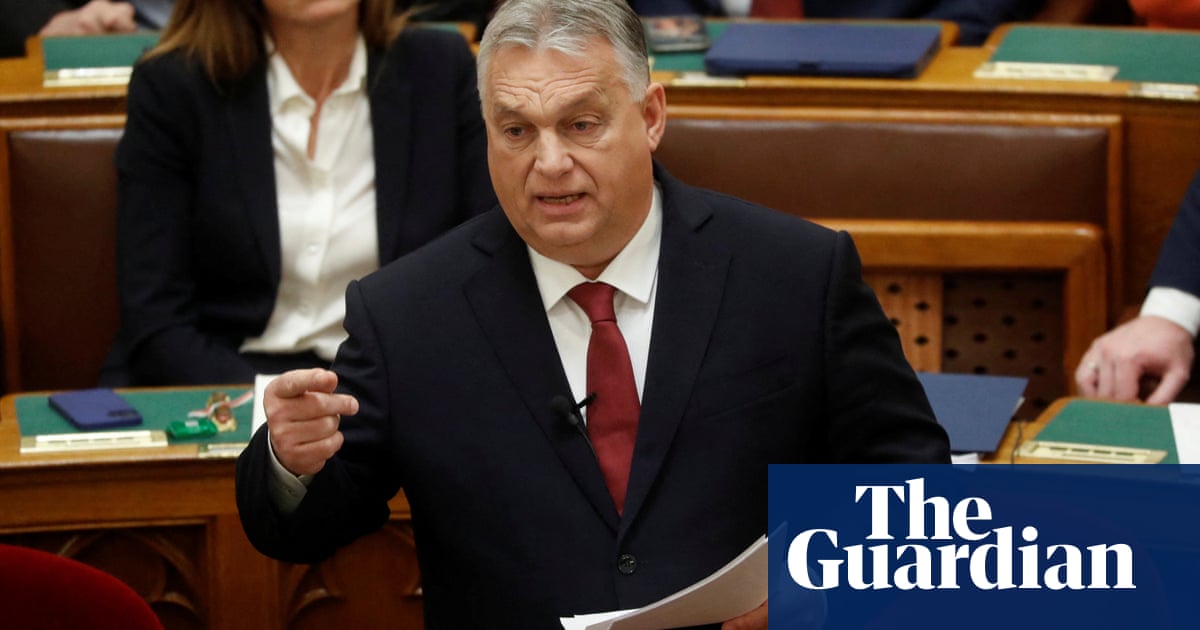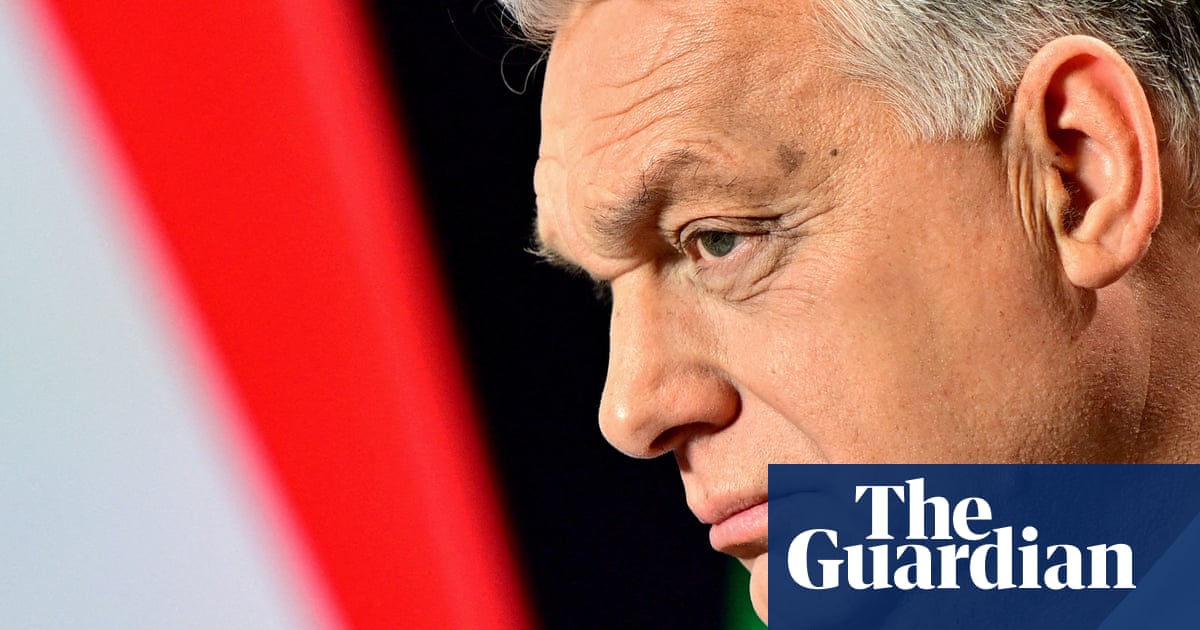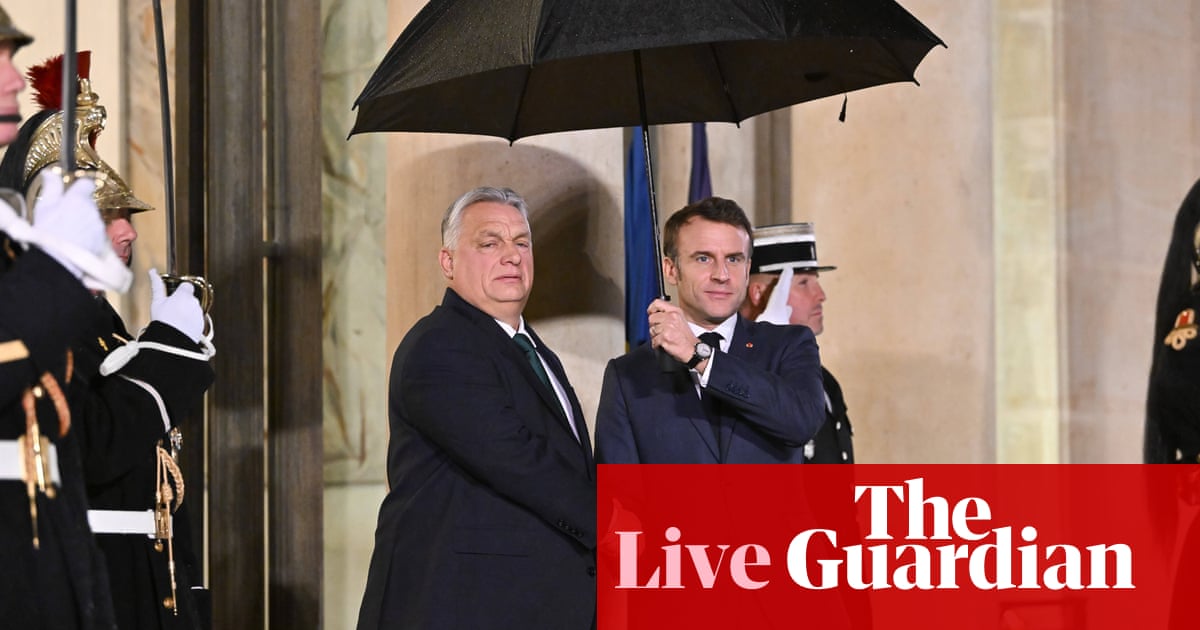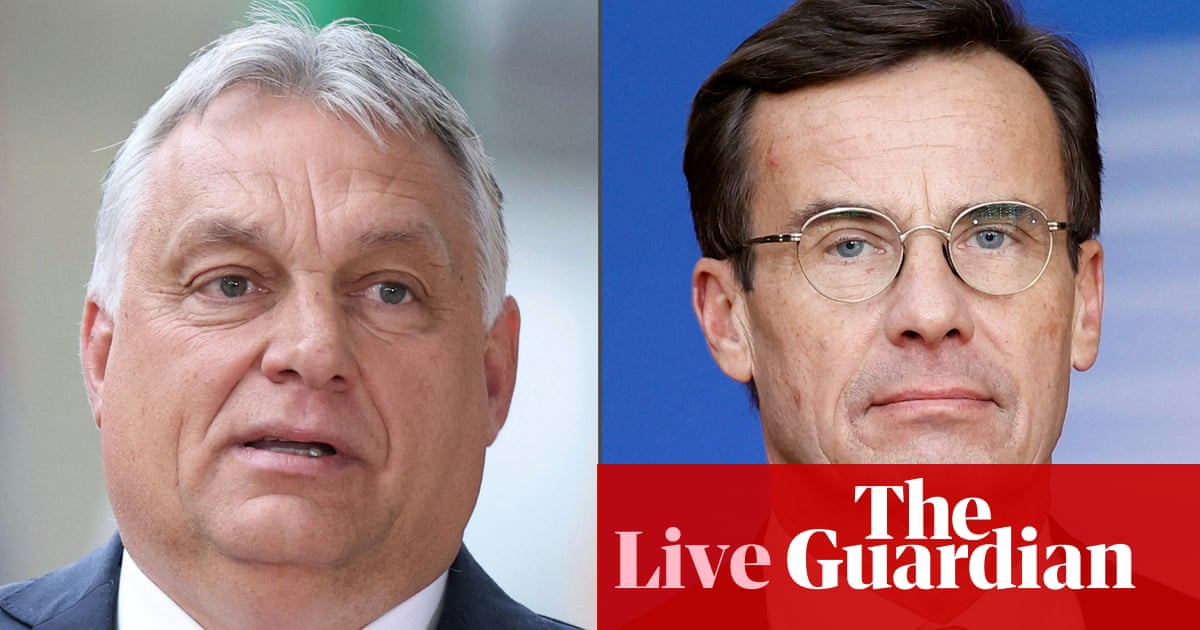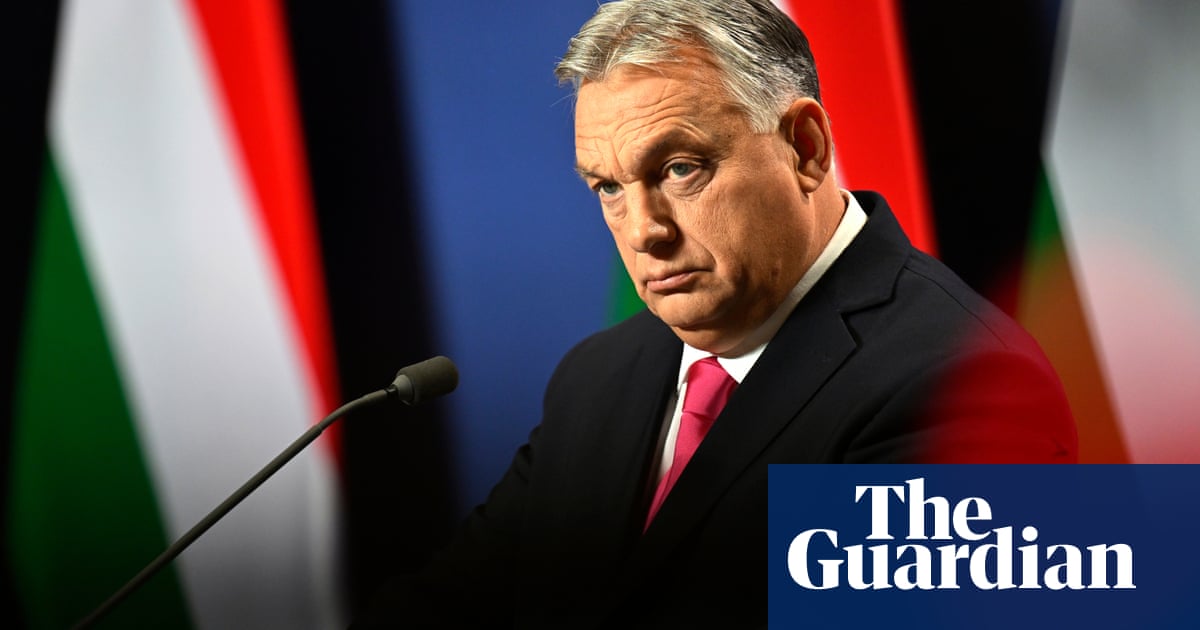
Viktor Orbán is one of Europe’s most experienced politicians – but he may be beginning to overplay his hand.
For years, the far-right populist Hungarian leader – prime minister from 1998 to 2002 and again since 2010 – has sought to punch above his weight in international politics. He has nurtured relationships with autocrats across the globe, funded projects abroad, and repeatedly used Budapest’s power to veto significant EU decisions as a bargaining chip.
At home, he has highlighted the Hungarian government’s battles with Brussels – sometimes appearing to even invent conflicts – and portrayed himself as a leading force on the European stage.
But over the past weeks, Europe’s heavy hitters have become more visibly irritated with the Hungarian leader, who is increasingly isolated.
In December, Orbán hijacked a summit on Ukraine, walking out of the room while leaders signed off on opening EU accession talks with Kyiv but still vetoing a much-needed €50bn long-term aid package for Ukraine.
This week, he again railed against the funding package for Ukraine before a summit called especially to bring him onboard – only to quietly relent after talks with leaders in Brussels.
As leaders arrived for the summit on Thursday morning, some did not hide their annoyance.
“Viktor definitely wants to be the centre of attention every time we are here, but it shouldn’t be like this,” said Kaja Kallas, the Estonian prime minister.
“I can’t understand, I can’t accept this very strange and very egoistic game of Viktor Orbán,” said Donald Tusk, Poland’s prime minister, decrying “Orbán fatigue”.
There was also concern that Orbán was wasting leaders’ time at a sensitive political moment, as farmers protest over taxes, rising costs and environmental rules in several European countries.
But despite Orbán’s defiant rhetoric, he received only tiny, largely symbolic concessions on the Ukraine aid package. It didn’t stop him claiming victory in his domestic communication.
Officials say the Hungarian leader’s behaviour indicates that while publicly he is highly obstructionist, in practice he has now hit a wall.
Hungary “understood that now they are coming close to the final line”, said one senior European official, who spoke on condition of anonymity to discuss sensitive internal matters.
They added that a leak to the Financial Times before the summit of an EU document outlining a strategy to target Hungary’s economic weaknesses “was taken seriously by Orbán”.
The official said “there was a purpose in putting out that strong a message” and that Orbán had understood at a meeting with a small group of influential EU leaders on Thursday that he had reached the “last line”.
The document, according to the FT, stated that if there was no agreement at Thursday’s summit, leaders would publicly declare that they could not imagine EU funds would be provided to Hungary, a move which, the document noted, “could quickly trigger a further increase of the cost of funding of the public deficit and a drop in the currency”.
A senior EU official told reporters that the document was merely a “background note” prepared by one office and did not reflect the negotiations. But it garnered significant attention in Budapest.
Diplomats say there is a sense in policymaking circles that the Hungarian leader’s rhetoric is not matching his behaviour when faced with significant pressure from the bloc’s other leaders.
“I’m starting to wonder whether the Hungarian word for ‘no’ sounds like ‘yes’ in English,” joked one European diplomat.
“Indeed, the pattern becomes quite clear: as long as he’s in Budapest, Orbán is adamant about resisting the EU, but as soon as he arrives in Brussels he signs up to everything,” the diplomat said.
Nevertheless, officials remain concerned.
Despite repeated promises that it will not delay Sweden’s Nato accession, Hungary is now the only member of the western military alliance to have not ratified the application, fuelling deep frustration in western capitals.
There is significant pressure from Washington and European capitals for the Hungarian parliament to do so.
And with European elections in June and the far right becoming more popular in a number of European countries, there is also a belief that Orbán is in waiting mode, hoping for a time when he can work with more friendly political figures.




